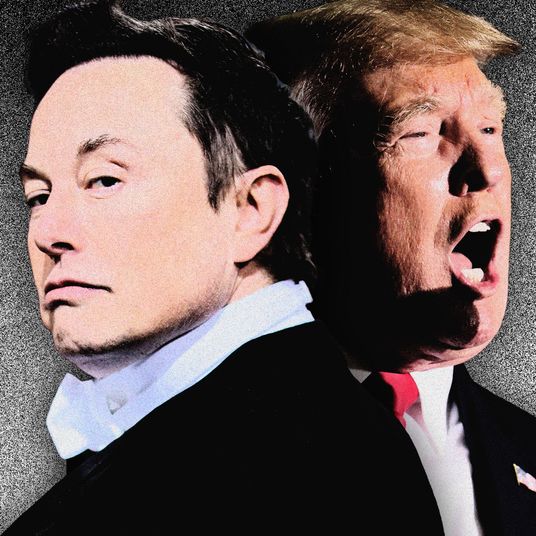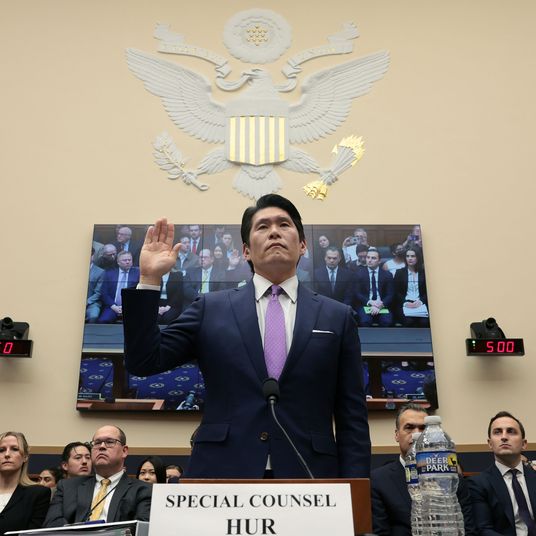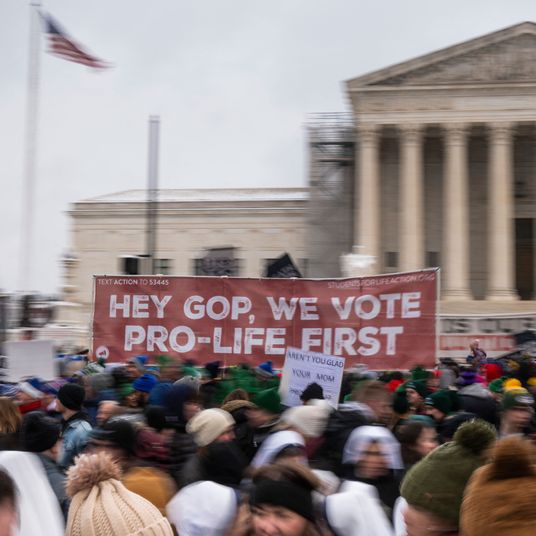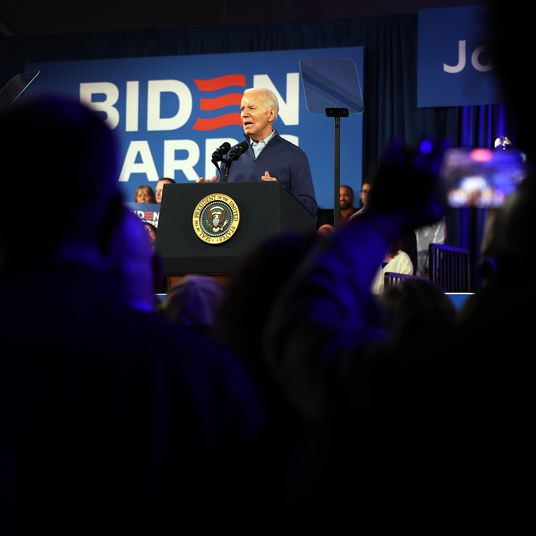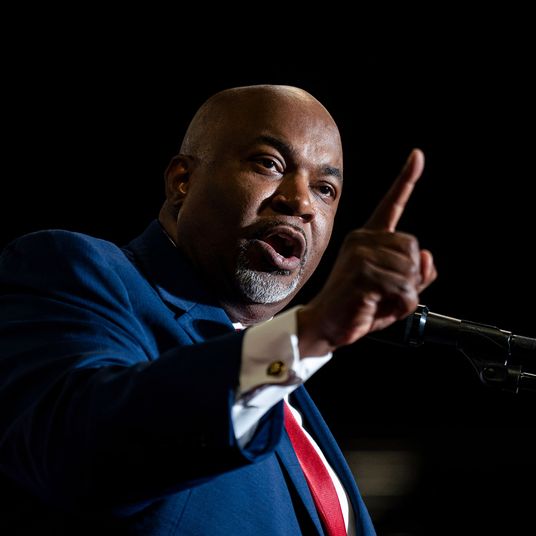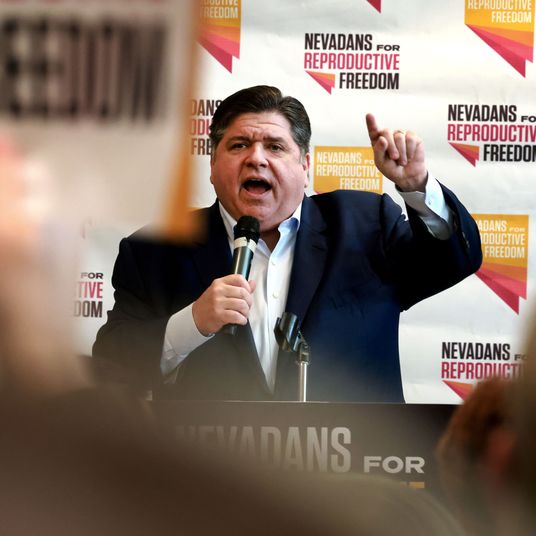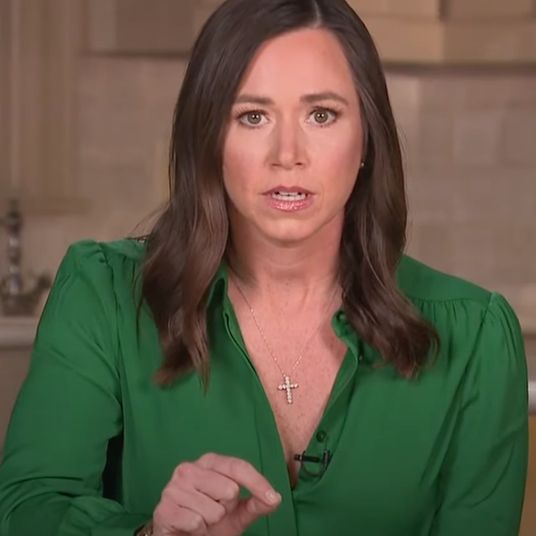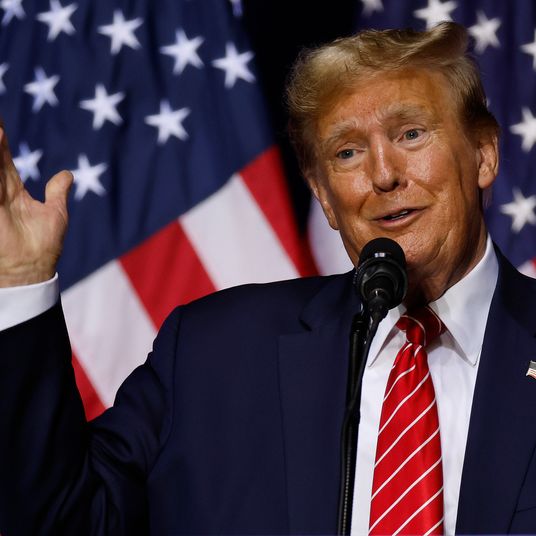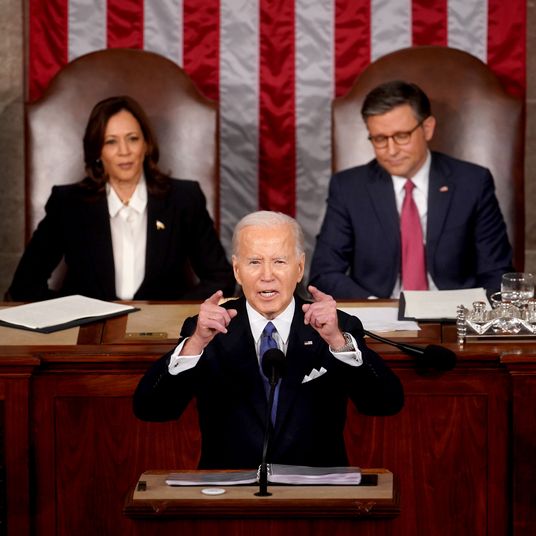By all accounts, Joe Biden’s 2024 State of the Union was a tonic for Democrats everywhere. He showed impressive vigor, addressing, at least to some extent, the preeminent age issue. He managed to explain and defend his record while incessantly drawing attention to the poor record and irresponsibility of “my predecessor.” And he put Republicans on the defensive on a range of issues where the GOP is either divided (Ukraine) or harboring very unpopular positions (abortion, health care, entitlements and taxes). It was generally acknowledged by friends and even enemies that the speech presented a framework for a general-election message Biden can follow going forward: America is coming back from the pandemic and its economic effects, and getting away from Trump’s destructive policies and allegiances, and it now faces a clear choice of direction between two very different men of the same generation.
But we are yet to see any objective indicators that the speech had any big impact on the odds of Biden being able to deliver a SOTU address in 2025. Snap polling on the speech itself was positive but only typically so; viewers, as always, skewed toward those already favorably inclined to the president. And an ABC-Ipsos survey that examined both reactions to the speech and underlying perceptions of Biden and Trump showed no real change:
Roughly three in ten Americans say President Joe Biden outperformed their expectations at Thursday’s State of the Union address, according to a new ABC News/Ipsos poll. Slightly more say he did better than expected when compared to the number who say he was in line with their expectations. However, more than one in three Americans – including nearly half of Americans under age 30 – did not read, see, or hear about the address.
While the president exceeded expectations for some, his approval rating on key issues remains unchanged, as the majority disapprove of his handling of the economy, crime, and the Israel/Hamas war, among others. Looking back at former President Donald Trump’s tenure, his approval ratings on many of the same issues are slightly better than Biden.
There haven’t been any new Biden-Trump head-to-head matchup polls publicly released since the SOTU. But there’s also no tangible reason to assume there will be any significant immediate change in the national and battleground-state deficits for Biden that have panicked so many Democrats and left-of-center commentators in recent weeks.
Yet perhaps the most influential apostle of of that panic, New York Times pundit Ezra Klein, reacted to the SOTU address with such an abrupt 180-degree turn that it became a news item in and of itself. Two weeks ago, Klein generated enormous buzz (particularly in elite circles) by recording a podcast wherein he suggested that Biden’s closest associates needed to persuade him to “step aside” as a candidate for reelection and let an unfettered Democratic Convention choose a replacement ticket. The very implausibility of the scenario Klein laid out showed how deeply he and the Democratic opinion leaders he talks to all the time had been demoralized by the president’s political standing.
Post-SOTU, Klein was upbeat, if not entirely euphoric, beginning with a mea culpa:
If the Joe Biden who showed up to deliver the State of the Union address last week is the Joe Biden who shows up for the rest of the campaign, you’re not going to have any more of those weak-kneed pundits suggesting he’s not up to running for re-election. Here’s hoping he does.
But it wasn’t just a matter of Biden’s energy level; his framing of the electoral choice won high praise from Klein as well:
Biden’s refrain of the American comeback is a sharp one. It does two things simultaneously. It reminds voters that there is something America is coming back from — namely, the dislocations of the pandemic, and the wild, erratic management style that Trump brought to it — and it lets Biden point to progress without declaring victory. It’s the right message for an incumbent: There are good things happening. Let’s keep going.
To a considerable extent, Biden’s fiery speech turned frowns upside down among the community of liberal-leaning pundits who have expressed doubt that Joe has what it takes to vanquish Trump a second time. Another member of this crew, CNN’s Van Jones, said this on air in January about Biden’s personal involvement in his reelection campaign:
If I were Biden, I would — I would stay hidden. And I’ll tell you why. He doesn’t inspire confidence. And he’s not a great messenger for himself …
There’s something wrong with this campaign, where we’re somehow expecting Joe Biden, and frankly, he hid during the last campaign, to start come out now and be Flash Gordon, and save this — his own campaign.
Here’s what Jones said after the SOTU address:
I thought that was a remarkable, fiery, powerful, vigorous guy. And I think it gives people a lot of confidence that this guy might be able to go the distance.
These reactions suggest that the prior pessimism in these circles was excessive. Quite possibly, the current optimism is excessive as well.
It’s as good a time as any to internalize the unpredictability of the long general-election campaign that began on Super Tuesday, when Biden and Trump disposed of their intra-party opponents altogether. Yes, the long-standing partisan polarization of the country and the familiarity of the candidates probably guarantees an outcome as close as in their previous encounter.
But there are so very many things about the 2024 election that are rare if not unprecedented that a volatile path to November seems likely. It’s the first matchup of a president with a former president since 1912. Both candidates are the oldest ever nominated by their parties and accordingly vulnerable to health incidents that may worry voters more than they should. Both parties, moreover, are undergoing changes in their base electorates that make the apparent state of equipoise misleading (e.g., will college-educated white voters trend Democratic more rapidly than non-college-educated nonwhite voters trend Republican?). And since the morale of each party is inevitably based on public-opinion measurements, there are unsettling questions about polling accuracy that may not be resolved until November.
So it’s a good idea to avoid overreactions to the perceived state of the race at any given moment, and also to avoid theoretically possible but outlandish scenarios (notably, either party rejecting the winner its own primary) aimed at resolving our fears and uncertainties. We’ll just have to live with them until events decide the country’s future. In the meantime, chilling a bit as polling trends evolve and moods change would be smart.


